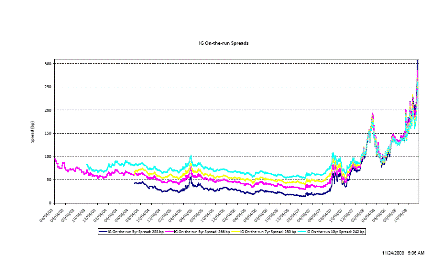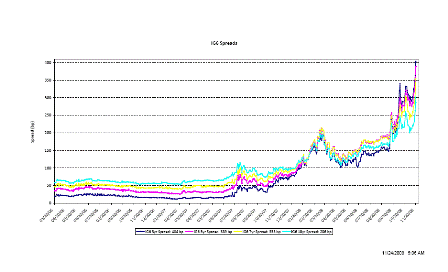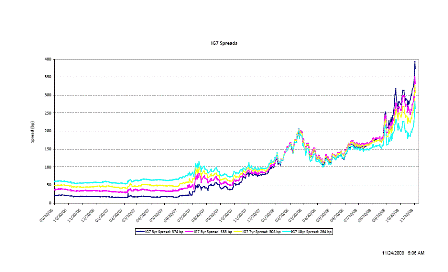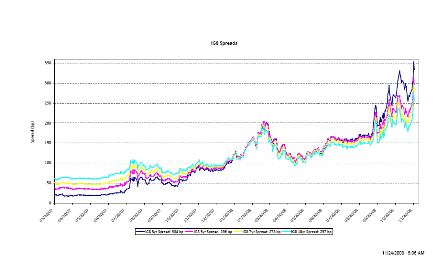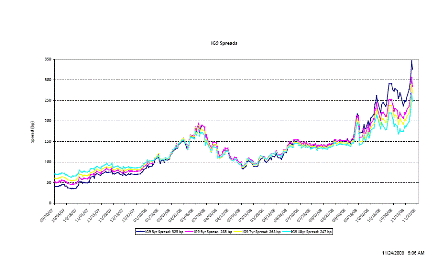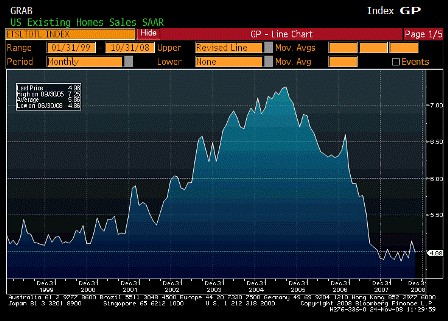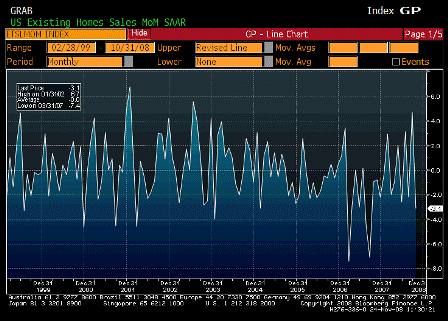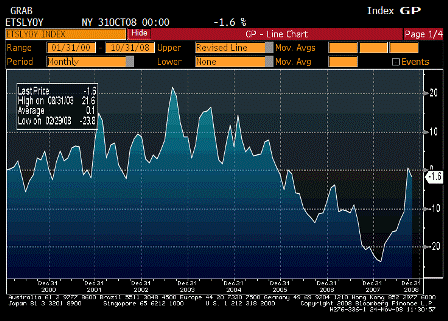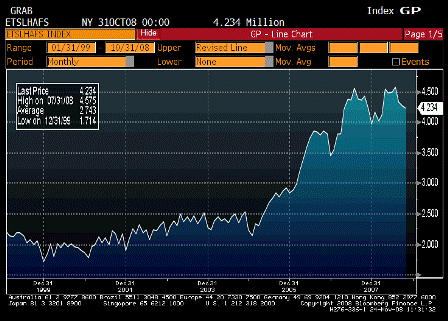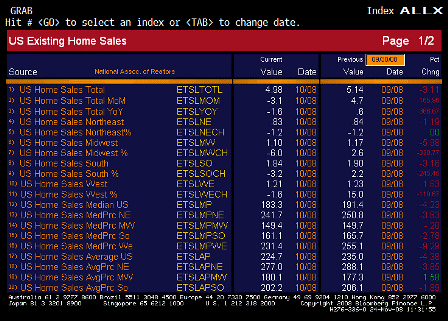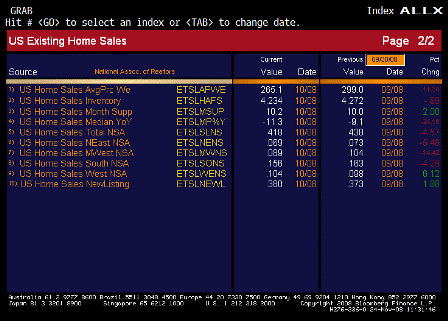Recession’s Grip Forces U.S. to Flood World With More Dollars
By Rich Miller
Nov. 24 (Bloomberg) — The world needs more dollars. The United States is preparing to provide them.
In an all-out assault on capitalism’s worst crisis since the Great Depression, the U.S. is taking on the role of both lender and borrower of last resort for the global economy.
To help fight the worldwide dollar squeeze, the Fed has set up currency swap lines with more than a dozen other central banks. Some arrangements, including those with Europe, Britain and Japan, are open-ended, allowing the Fed’s counterparts to draw as many dollars as they need. The U.S. has also established individual $30 billion swap lines with Brazil, Mexico, South Korea and Singapore.
In a speech to a banking conference on Nov. 14, Bernanke characterized these efforts as an “internationally coordinated approach” among central banks to fulfill their function as lenders of last resort.
I’d characterize it as a pure Fed ‘give away’ program.
[top]

